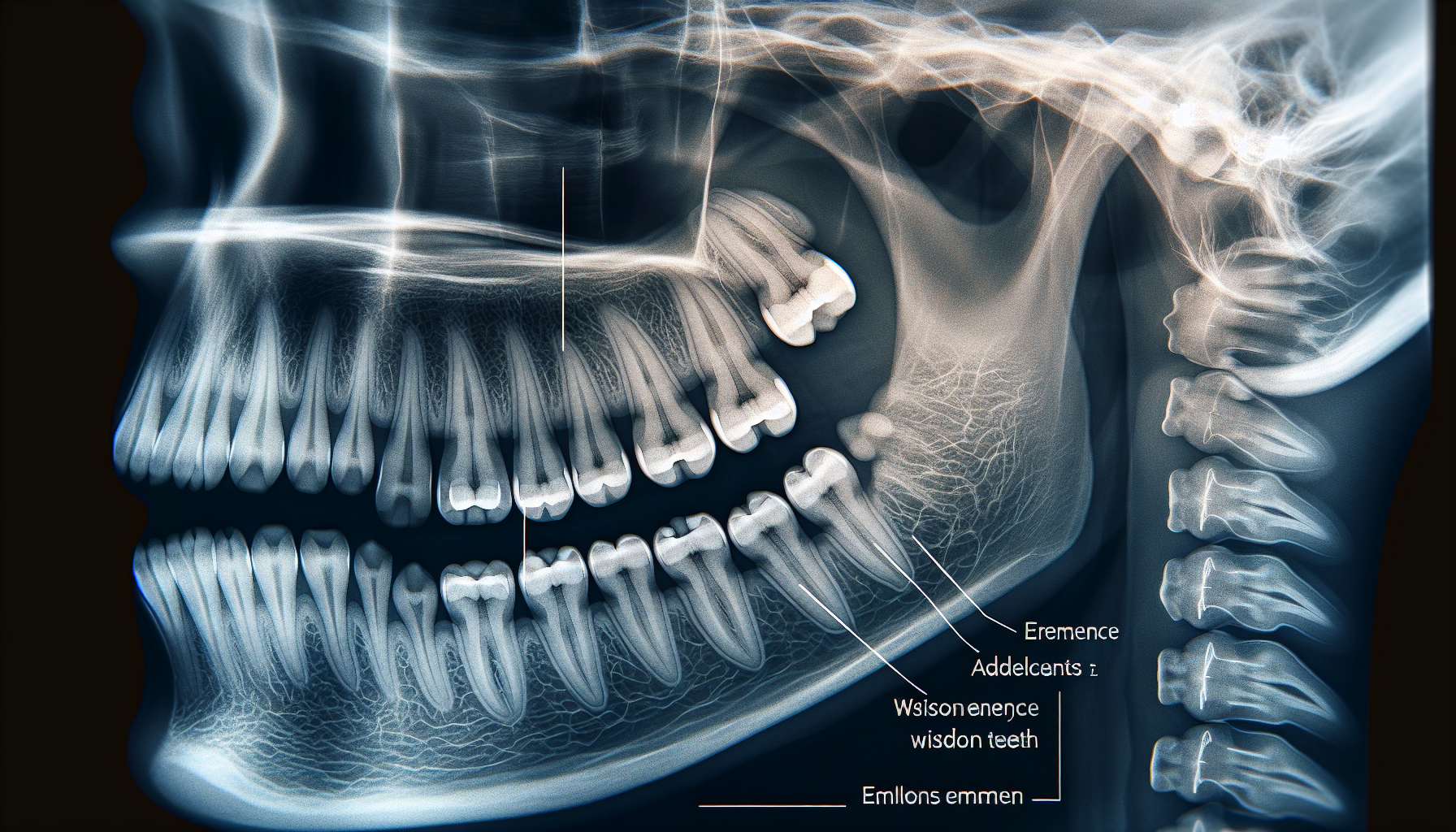It’s quite possible for wisdom teeth to make an appearance around the age of 14. These third molars, also known as wisdom teeth, typically erupt between the ages of 17 and 25, but everyone’s dental timeline is unique. So, if you’re in your early teenage years and experiencing potential signs of wisdom teeth, like pain or discomfort in the back of your mouth, it’s not entirely surprising. Let’s dive into the fascinating world of wisdom teeth and explore the potential scenarios of them showing up at the age of 14.
Can Wisdom Teeth Come In At 14?

What Are Wisdom Teeth?
Wisdom teeth, also known as third molars, are the last set of teeth to emerge in the back of the mouth. They typically appear in late adolescence or early adulthood, usually between the ages of 17 and 25. These teeth are named “wisdom teeth” because they come in at a time when a person is believed to have gained wisdom.
Typical Age of Wisdom Teeth Emergence
The usual age for the emergence of wisdom teeth is around the late teenage years. However, the exact timing can vary from person to person. Some individuals may start experiencing the eruption of their wisdom teeth as early as 14, while others might not see them until their early twenties. 14 is generally considered relatively young for the development of wisdom teeth, but it is not entirely uncommon.
Factors Affecting Wisdom Teeth Development
Several factors can influence the development and eruption of wisdom teeth. Genetics play a significant role, as the timing can be hereditary. Additionally, the size and shape of the jaw, as well as the available space in the mouth, can affect the growth of these teeth. If there is insufficient room for the wisdom teeth to fully emerge, they may become impacted or come in at an angle, leading to potential complications.
Signs of Wisdom Teeth Development
There are several signs that may indicate the development of wisdom teeth. These include:
- Soreness or pain in the back of the mouth.
- Redness or swelling of the gums in the area where the wisdom teeth are erupting.
- Discomfort or pressure in the jaw.
- Increased sensitivity or pain while eating or drinking.
- Feeling a new tooth beginning to emerge in the back of your mouth.
- Difficulty opening your mouth fully.
- Noticeable changes in the alignment of your existing teeth.
If you experience any of these symptoms, it is essential to consult a dental professional for an evaluation.

Potential Problems with Wisdom Teeth
In some cases, wisdom teeth can cause complications. Due to their late eruption and limited space available in the mouth, they may not align correctly with the existing teeth, causing crowding and misalignment. Partial eruption of the wisdom teeth can create pockets where food particles and bacteria can accumulate, leading to gum disease and infections. Impacted wisdom teeth, trapped beneath the gum line and unable to fully emerge, can also result in pain, swelling, and damage to adjacent teeth.
Why Wisdom Teeth May Emerge Early
While the typical age for the emergence of wisdom teeth is late adolescence to early adulthood, there are situations where they may develop earlier. Genetics play a significant role, as individuals with a family history of early wisdom tooth eruption are more likely to experience it themselves. Jaw size and available space in the mouth can also influence early emergence, as a larger jaw may accommodate these additional teeth at an earlier age.
Why Wisdom Teeth May Be Delayed
On the other hand, wisdom teeth may also be delayed in their eruption. The lack of available space in the mouth, especially if the existing teeth are crowded, can cause a delay in the emergence of wisdom teeth. Sometimes, the wisdom teeth may not develop at all, a condition known as agenesis. This absence of wisdom teeth is more prevalent among certain populations, suggesting a genetic influence.
Treatment for Early or Delayed Wisdom Teeth Emergence
If wisdom teeth emerge early or are delayed, it is important to consult a dental professional for proper evaluation and guidance. In some cases, early extraction of wisdom teeth may be recommended to prevent potential complications, such as misalignment, crowding, and oral health issues. Delayed emergence may require periodic monitoring to ensure they do not pose any risks or require intervention in the future.
How to Determine If Wisdom Teeth Are Coming In at 14
If you are wondering whether your wisdom teeth are coming in at the age of 14, there are a few signs to look out for. First, you may experience discomfort or soreness in the back of your mouth. Your gums may appear red or swollen in the area where the wisdom teeth are erupting. You might also feel pressure in your jaw or have difficulty opening your mouth fully. If you notice any of these symptoms, it is advisable to consult a dental professional for a thorough examination.
When to Consult a Dental Professional
Regardless of your age, if you suspect that your wisdom teeth are coming in or if you experience any signs of discomfort or potential problems, it is essential to consult a dental professional. They will be able to assess your specific situation and provide appropriate guidance. Regular dental check-ups and X-rays can help identify the development and position of wisdom teeth, allowing for early intervention if necessary.
In conclusion, while 14 is relatively young for the emergence of wisdom teeth, it is not unheard of. The timing of their appearance can vary from person to person, influenced by genetics, jaw size, and available space in the mouth. If you suspect your wisdom teeth are coming in or causing any discomfort, it is always best to consult a dental professional for a thorough evaluation and appropriate treatment recommendations.

